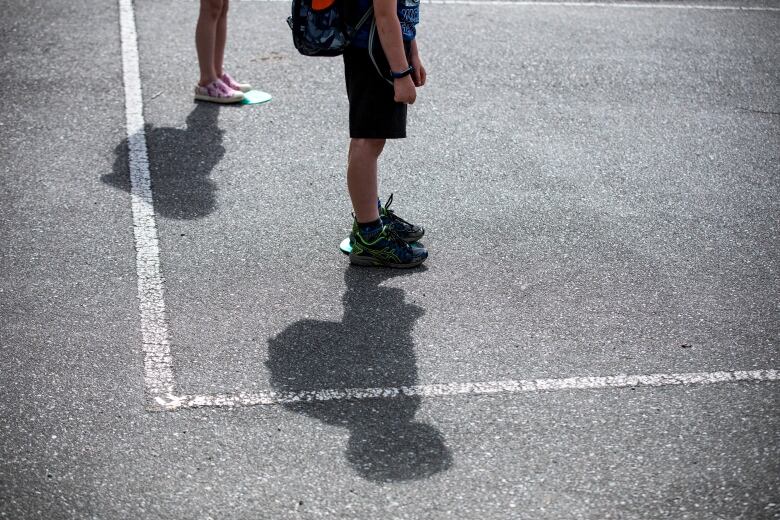Children’s mental health could be ‘significantly’ affected by pandemic, study warns
[ad_1]
A new study has found children’s mental health is likely to be “significantly” affected by the COVID-19 pandemic, affirming the worry countless parents have been feeling since March and putting pressure on policymakers to offer more help so kids don’t carry symptoms through to adulthood.
The research review released Thursday found anxiety, depression, behavioural issues and post-traumatic stress could become far more common in children both during the pandemic and in its aftermath. For those children most severely affected, symptoms could increase “by as much as tenfold.”
“The findings showed dramatic increases,” it read.
The study, commissioned by the B.C. Representative for Children and Youth, also said longstanding social and economic inequities in society exacerbate mental health effects of the pandemic.
Authors compare ‘health’ disasters to natural disasters
Its authors looked at five academic reports researching the way previous “health disasters” like pandemics affected children’s state of mind in comparison to “natural disasters” like earthquakes and tsunamis.
One 2009 study found 30 per cent of children who were isolated or quarantined as a result of H1N1, SARS or the avian flu developed symptoms of post-traumatic stress disorder (PTSD).
Meanwhile, only 5-11 per cent of children who were affected by an earthquake, wildfire, flood or hurricane later showed symptoms of PTSD, according to several reports published between 2010 and 2018. Some studies also found children whose parents developed PTSD were likely to follow suit.
Side by side, the studies suggest children are more likely to develop PTSD after a pandemic than a natural disaster.
The authors said they could not find any studies directly investigating the effect of the COVID-19 pandemic on children — likely, they said, because the pandemic is still relatively new and far from over — but in theory, the impact of COVID-19 will be worse than previous pandemics as its impact on day-to-day life has been far worse and far more prolonged.
Already, as the province trudges into its ninth month of the pandemic, Kids Help Phone has reported a 51 per cent increase in texts from kids looking for help. As for phone calls, the 24/7 counselling service has seen a 70 per cent increase since May.
Inequality raises risk to mental health
Longstanding social and economic inequities in society were found to exacerbate the effects of the virus, impacting children’s mental health disproportionately by affecting family relationships and dynamics at home and the level of help they can access.
Children who already had mental health concerns before the pandemic, particularly anxiety and depression, are especially vulnerable, the review found. For example, children who were already anxious will feel increasingly unsteady, and those with depression will find it harder to cope.

Kids will pick up on tension at home if their parents are facing job losses or juggling the responsibilities of parenting and working remotely.
For low-income families, children who relied on school supports like meal programs will have struggled when schools were shut down. Others might not be in a position, financially or geographically, to access any treatment services or counselling.
The study found racism is also likely to contribute to COVID-19 having a disproportionate impact on mental health, noting the flare in anti-Asian racism seen across the province since the virus began to spread.
The authors also said Indigenous children may “also be particularly disadvantaged,” facing systemic racism, inadequate access to health care and other disadvantages created by colonialism.

Opportunity in crisis
The authors, however, went on to say the province can learn from Indigenous communities and their response to the pandemic. It noted how communities have acted to slow the transmission of COVID-19 in their own communities and prevent as many adverse affects of the pandemic as possible, to much success.
“If borne out over time, these successes will be extraordinary,” the report said.
The authors say the province will need to provide treatment and support for children going forward, first addressing existing service shortfalls and then sustain the proper level of service. The budget needs to be a priority, protected from cuts, as the next generation grows up.
“COVID-19 is an unprecedented public health crisis. Yet it also presents an unprecedented opportunity — to make B.C. a place where the social and emotional wellbeing of all children is highly valued and where children are the focus of sustained collective efforts to ensure their healthy development,” the study said.
[ad_2]
SOURCE NEWS

